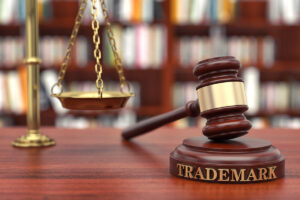 Trademark infringement is very common these days. Here’s everything you need to know about trademark infringement.
Trademark infringement is very common these days. Here’s everything you need to know about trademark infringement.
Trademark is an intellectual property that helps customers recognize a product/service. It can be a sign, logo, or punch line that differentiates an enterprise product/service from others.
Every business has to face cut-throat competition, and to rule in this era entity has to make its brand more valuable, which is the value of trademarks.
The Trademarks Act 1999 consists of all rules and regulations relating to Registration, Rights, Infringement, and Penalties. In India, trademark infringement can face civil and criminal suits as it is a cognizable offence.
In this Act, we will come across many answers to all the following questions about the Infringement of Trademarks: What are the rights of a Trademark holder, Who Can Sue for Infringement of Trademark or What is the Number of Penalties?
What is Trademark Infringement?
In simple words, Infringement is a violation of rights carried with a registered Trademark without having prior permission. Following are some situations that which court treats as Infringement of Trademarks –
- If the disputed mark is uniform to the mark registered and is related to a similar product or service
- If a person uses the registered trademark as his Trade or Business name or part thereof dealing in goods/services in respect of which trademark is registered.
- If a person affixes a registered Trademark to goods or packaging. For labelling of other goods or on import or export products without authorization.
- If a person uses such a Trademark for an advertisement to take unfair advantage of the reputation of the Trademark
- If a person who is not a registered proprietor of the Intellectual property uses the mark in the ordinary course of business or trade, which is identical to the goods/services in respect of which the Trademark is registered.
All of the above is a direct infringement, and there is another type of Infringement: Indirect Infringement.
Indirect Infriginory is the person who either knows the person infringing the trademark or materially contributes the direct Infringer to commit Infringement.
Alternatives to Infringement Lawsuits
The Infringement of Trademarks can be settled by alternative solutions rather than taking lawsuits, which are more economical and modest than legal proceedings.
The infringing party can be ceased or restricted from any infringement activity by applying. Alternative resolution for disputes helps achieve mutual agreement, saves time and money, helps avoid the unnecessary stress of going to court, and is more confidential.
- Minitrial technique: It is a settlement technique where both parties give a brief argument. The final jury will decide the settlement amount.
- Negotiator/ Arbitrator: If the ministerial technique does not work, the parties select a negotiator, and his decision binds both parties.
Who Can Sue for Infringement of Trademark?
The Owner or Proprietor or his legal heir is the only person Who Can sue for Infringement of Trademark. A person other than the proprietor can not go for any proceedings concerning the Infringement of Trademarks.
The proprietor can sue the person who is using the registered mark unauthorizedly. These persons include persons Selling and manufacturing goods with the registered mark. The Act is only applicable to the registered mark.
In the case of the Infringement of an unregistered mark, the common law of passing off applies to it. A person using someone’s registered mark illegally will concentrate on the primary objective of damaging the goodwill of the registered owner or having the wrong intention of taking undue advantages or any illegal motives.
Penalties for Trademark Infringement
As per The Trademark Act 1999, the Infringement of a Trademark is a cognizable offence. The person infringing the Trademark can be imposed with a monetary penalty or imprisonment.
The penalty is not less than 50000/-, which can be extended up to Rupees 2 lakhs—imprisonment for a minimum of months that can be extended to 3 years.
The following remedies are also available to the proprietor whose trademark has been infringed-
- Cost of litigation
- Compensation for damages
- Demolition of the Product use with the trademark
- File a temporary or permanent injunction to stop them from using your rights
Conclusion
Securing the brand name is increasing in India, and many people are nowadays more aware of the laws. Trademark is a company’s Brand logo or sign that specifies it from others to the customers. Only the proprietor who registers the trademark can use it.
Infringement of the trademark can cause a decrease in the brand value of the product. If any person falsely infringes the registered mark for his personal or any other interest without authorization will be liable to civil or criminal proceedings, as the case may be.
The trademark owner is the only person Who Can Sue for Infringement of Trademark. Infringement is common now, so people should be aware of these legal proceedings and remedies.

